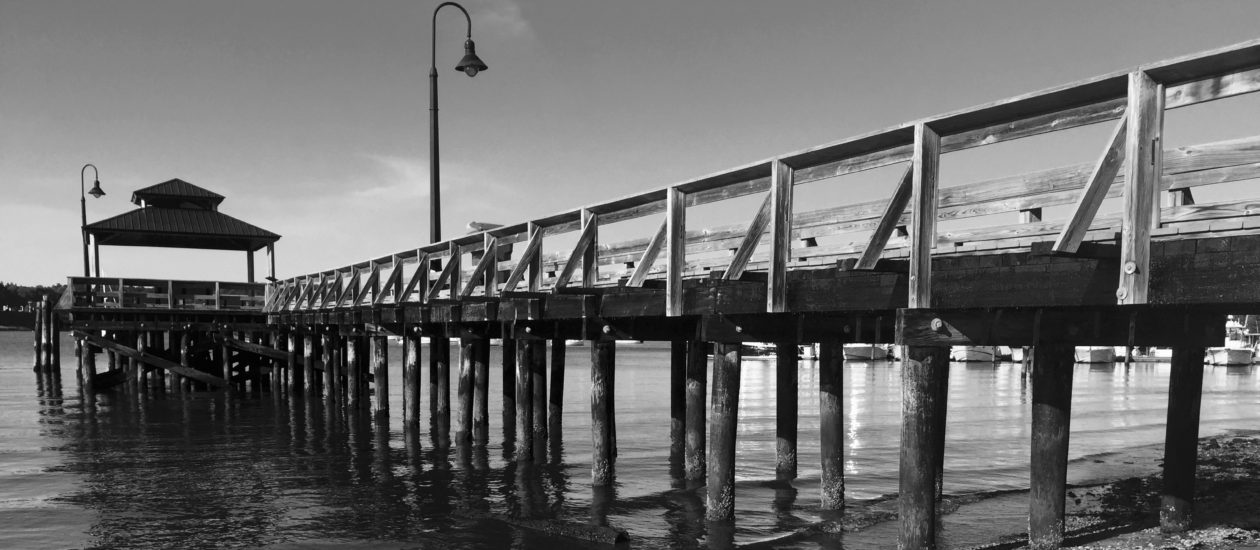The dead juvenile female humpback whale that washed up onto the shore of the beach at Manasquan Inlet on Monday was hauled away on Tuesday for examination by necropsy specialists.
The Monmouth County Department of Public Works and Engineering used its equipment and personnel to assist National Oceanic and Atmospheric Administration (NOAA), Marine Mammal Stranding Center (MMSC), the New Jersey Department of Environmental Protection and Manasquan authorities with the Tuesday removal.
The whale’s wash-up was first reported to the MMSC, according to the NOAA Greater Atlantic Regional Fisheries Office. Necropsy teams from MMSC and Atlantic Marine Conservation Society were on scene during the removal process to to glean information about the whale and formulate a plan for the necropsy.
The decision was made to move the whale to a county facility for examination and tissue sampling. There, the necropsy teams will be afforded access to the heavy equipment and resources necessary for a complete examination of the 35-foot-long juvenile female.
This was the ninth dead whale wash-up in roughly two months.
Clean Ocean Action has attributed the whale deaths to offshore wind power plant activity in the area.
In January, after the unprecedented deaths of seven whales in 39 days at the Jersey Shore, Clean Ocean Action Executive Director Cindy Zipf released a statement on the subject. In it, she called for a thorough investigation to provide proof to the contrary if the offshore wind energy projects are not, in fact, a catalyst to disruption and death of marine life, as other energy-related projects have proven to be.

Photo/Marc Grauer
“Why wouldn’t the 11 offshore wind-related companies be suspected? They are currently authorized to conduct pre-construction and construction activities allowing them to harm, harass, and injure as many as 63,820 marine mammals. When has there ever been this many industrial activities permitted in the region at the same time? Where is the evidence that these deaths are not related to the intense offshore wind sonar and other geotechnical activities?
Clean Ocean Action Executive Director Cindy Zipf
According to the National Marine Fisheries Service these pre-construction and construction activities can cause ‘injury’ and ‘disruption of behavioral patterns including migration, breathing, nursing, breeding, feeding, or sheltering.’ With such activities, there are more ships and vessels in the area which increase potential ship strikes, and sonar can deafen or disorient whales, leading them into the path of oncoming vessels. Why shouldn’t endangered species get precautionary treatment and trigger a full investigation? Importantly, why should offshore wind get a pass on scrutiny to ensure marine ecosystem protection, especially for
endangered and protected species?
Any industrial activity — especially reckless industrial development that is massive in scope, scale, magnitude, and speed — should be required to prove it is protective of the marine ecosystem. This is why Clean Ocean Action also continues to call for a pilot project to assess threats. A pilot project could inform responsibly developed offshore wind, which was the promise of Governor Murphy.”
As Zipf said in her statement, Clean Ocean Action believes that the method of wind turbine construction and its pre-construction research, a sonar used to detect the right spot for wind turbine construction may be the culprit, as it can “deafen and disorient” the whales.
NOAA, having monitored an uptick in whale deaths since 2016, has said that ship strikes account for most whale deaths.
Though, Zipf said that the increased ship activity surrounding the turbine projects could account for the whale strikes and especially high increase in 2022-23 whale deaths in particular.
In the Rumson-Fair Haven area there has been an unusual increase in whale sightings in the past couple of years, including off the shore of Sea Bright and in the Shrewsbury River.
In the meantime, a rally, organized by environmental group Protect Our Coast, has been set for 1 p.m. on Sunday on the Point Pleasant Boardwalk outside of Jenkinson’s Aquarium.
County and environmental officials advise that if a marine mammal in distress is ever encountered , please contact the Greater Atlantic Marine Mammal Stranding Hotline at 866-755-6622.
— Photo and released statement on whale removal/Monmouth County
- Scene Around: A Local Paperboy, Musician, Actor/Writer and a Street Naming
- Prosecutor: 53-Year-Old Man Convicted of Wife’s Murder
- Prosecutor: Fatal Thursday Crash Under Investigation; Witnesses Sought
- Retro RFH Baseball Dugout Daze
- Prosecutor: Area Man Gets 30 Years for 2021 Home Invasion, Sexual Assault



You must be logged in to post a comment.